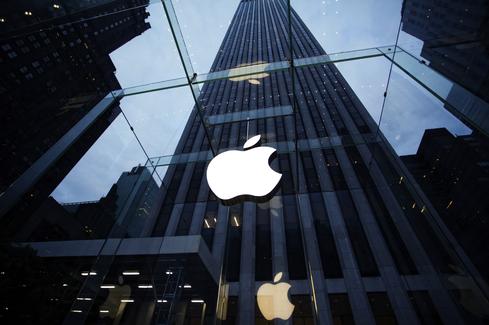Apple Bites Back At EU's $14.5 Billion Tax Bill
The EU says that Ireland gave Apple illegal tax breaks over a period of 10 years and now wants the tech giant to pay 13 billion euros, or about $14.5 billion, in back taxes.


Apple At 40: 12 Products That Changed Computing Forever
Apple At 40: 12 Products That Changed Computing Forever (Click image for larger view and slideshow.)
The European Commission ruled Tuesday that Apple owes more than 13 billion euros, or about $14.5 billion, in back taxes because Ireland granted unfair and illegal tax breaks to the tech giant -- a charge the company's CEO Tim Cook denied in an open letter.
"Apple follows the law, and we pay all the taxes we owe," Cook said in the letter. He added that the commission's antitrust regulator has gone too far in suggesting that Apple has unfairly avoided nearly all corporate taxes for the last 10 years. The charge may strain transatlantic relations.
The commission says Ireland offered Apple a lenient tax deal in 1991 and again in 2007 that let the company pay about 1% tax on its Europe-earned corporate profits from 2003 to 2014. Under the tax deal, only a small fraction of Apple's profits were taxed.
"The commission's investigation concluded that Ireland granted illegal tax benefits to Apple, which enabled it to pay substantially less tax than other businesses over many years," said European antitrust commissioner Margrethe Vestager in a statement. Vestager suggested Ireland also needs to reset Apple's corporate tax rate and start collecting more money on Apple's reported profits. Moreover, Vestager says other European countries should lean on the EU's ruling to reevaluate their own corporate tax structures.
Michael Noonan, Ireland's finance minister, said he "[disagreed] profoundly with the commission's decision" and will appeal the ruling.
Cook said in his letter, "The European Commission has launched an effort to rewrite Apple's history in Europe, ignore Ireland's tax laws, and upend the international tax system in the process."
The $14.5 billion figure is the largest ever penalty by the EU for such activities and hinges on laws that prevent corporations from relying on government aid to win advantages over competitors. The EU says it believes Ireland's tax arrangement amounts to government aid for Apple.
[Read Apple, Taxes, And Why Tim Cook Is Wrong.]
Europe has a history of attacking US-based companies through its regulatory bodies. Perhaps the most prominent cases involve Microsoft and Google, which have both been accused by the EU of favoring their own apps and services over those made by competitors. (Microsoft was fined for preloading its Explorer browser on PCs, while Google is under fire for preloading Gmail, Google Maps, and other apps on Android phones.)
Apple, the most profitable company in the world, has become a target lately, particularly because of its enormous cash reserves -- some of which resides in Ireland.
Surely Apple will appeal the ruling, and the matter will take many months to resolve. In the meantime, the US Treasury Department was critical of the decision and others like it. Further, the decision may cool corporate investment. Companies based in the US don't want to be on the hook for any more taxes than necessary, and Europe's aggressive enforcement action may cause them to think twice before entertaining the idea of doing business in Europe.
About the Author
You May Also Like






